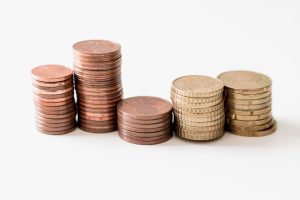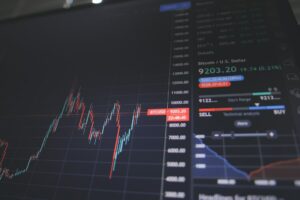The foreign exchange market, or forex, is the largest and most liquid financial market in the world. With trillions of dollars traded daily, it offers immense opportunities for individuals looking to profit from currency fluctuations. However, in order to participate in this market, you need to choose a reputable forex broker. In this article, we will discuss how to choose the best forex broker to start trading.
Regulation and Security
The first and foremost factor to consider when choosing a forex broker is regulation and security. Forex brokers are typically regulated by financial authorities in the countries they operate in. These regulators ensure that brokers adhere to certain standards and guidelines, which ultimately protect investors’ interests.
As a trader, you need to ensure that your broker is regulated by a reputable authority. Some well-known regulatory bodies include the Financial Conduct Authority (FCA) in the UK, the National Futures Association (NFA) in the US, and the Australian Securities and Investments Commission (ASIC) in Australia. Regulatory bodies provide a certain level of protection for traders, such as segregating client funds and ensuring fair trading practices.
Trading Platform and Tools
The trading platform is the software that allows you to access the forex market and execute trades. It is essential to choose a broker that offers a user-friendly and reliable trading platform. A good trading platform should have a clean and intuitive interface, advanced charting tools, and a wide range of order types.
Additionally, consider the availability of mobile trading apps. With the advancement of technology, it is crucial to have the flexibility to trade on the go. Mobile trading apps allow you to monitor your trades and execute orders from your smartphone or tablet.
Trading Costs and Spreads
Another important factor to consider is the trading costs and spreads offered by the broker. Forex brokers earn money through spreads, which is the difference between the buying and selling price of a currency pair. Lower spreads mean lower trading costs, so it is ideal to choose a broker that offers competitive spreads.
However, be cautious of brokers that offer excessively low spreads, as they may have hidden fees or poor execution quality. It is recommended to compare spreads across different brokers to ensure you are getting a fair deal.
Customer Support
When starting out in forex trading, it is crucial to have access to reliable customer support. Forex markets operate 24/5, so it is essential to choose a broker that provides round-the-clock customer support. This can be in the form of live chat, phone support, or email support.
Additionally, consider the quality of customer support. A good broker will have knowledgeable and responsive support staff who can assist you with any trading-related queries or technical issues.
Account Types and Minimum Deposit
Forex brokers offer different types of trading accounts to cater to various needs and trading styles. Some brokers offer standard accounts, while others provide mini or micro accounts for traders with smaller capital. It is important to choose a broker that offers an account type that suits your trading needs.
Furthermore, consider the minimum deposit requirement. Some brokers require a large initial deposit, which may not be suitable for beginner traders. Look for brokers that offer low minimum deposit requirements, allowing you to start trading with a smaller amount of capital.
Additional Services and Education
Lastly, consider the additional services and educational resources provided by the broker. Some brokers offer educational materials, such as webinars, tutorials, and trading guides, which can be valuable for beginner traders. Additionally, some brokers may offer research and analysis tools to assist you in making informed trading decisions.
Conclusion
Choosing the best forex broker to start trading is a crucial decision that can greatly impact your trading success. Consider factors such as regulation and security, trading platform and tools, trading costs and spreads, customer support, account types and minimum deposit, and additional services and education. By carefully evaluating these factors, you can find a reputable and reliable forex broker that meets your trading needs.






